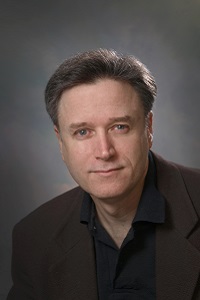A Quote by Penny Marshall
I have a grandson who is 20. He's a computer guy. I'm worried that he can't communicate without his machine. They have no personal contact with people. That's the bad part of technology.
Related Quotes
The personal computer was a disruptive innovation relative to the mainframe because it enabled even a poor fool like me to have a computer and use it, and it was enabled by the development of the micro processor. The micro processor made it so simple to design and build a computer that IB could throw in together in a garage. And so, you have that simplifying technology as a part of every disruptive innovation. It then becomes an innovation when the technology is embedded in a different business model that can take the simplified solution to the market in a cost-effective way.
Tweeting is something you can do wherever you are, on your phone, on the computer, in an airport lounge. It's easy to do, and I do find it fun to communicate with people. It's quite nice that we can have almost direct contact with anyone in the world at any time. I don't know how important it is in terms of one's career. It seems to be pretty much superfluous in terms of that, but it's nice to communicate.
In a sense, every tool is a machine--the hammer, the ax, and the chisel. And every machine is a tool. The real distinction is between one man using a tool with his hands and producing an object that shows at every stage the direction of his will and the impression of his personality; and a machine which is producing, without the intervention of a particular man, objects of a uniformity and precision that show no individual variation and have no personal charm. The problem is to decide whether the objects of machine production can possess the essential qualities of art.
The constructive schizoid person stands against the spiritual emptiness of encroaching technology and does not let himself be emptied by it. He lives and works with the machine without becoming a machine. He finds it necessary to remain detached enough to get meaning from the experience, but in doing so, to protect his own inner life from impoverishment.
Physiologically, man in the normal use of technology (or his variously extended body) is perpetually modified by it and in turn finds ever new ways of modifying his technology. Man becomes, as it were, the sex organs of the machine world, as the bee of the plant world, enabling it to fecundate and to evolve ever new forms. The machine world reciprocates man's love by expediting his wishes and desires, namely, in providing him with wealth.




































